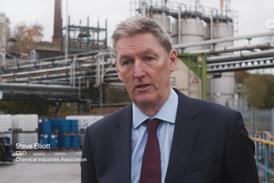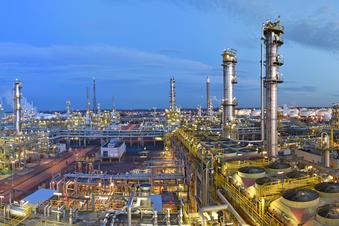The CCL is a UK-only tax on energy that manufacturers do not face elsewhere. Its continued persistence is in direct contrast with efforts in the Industrial Strategy that aim to reduce energy prices to unlock investment here in the UK. Owing to existing CCA-related relief from the CCL, the cost to Treasury of removing this UK-only energy tax from EIIs in the chemical sector would be minimal (less than £20m) but it would immediately reduce regulatory burden and simplify the case for investment. This would help mitigate the impact of higher UK energy cost and align it with the Government’s growth agenda.
The Climate Change Levy (CCL) is a tax charged on energy use by UK businesses. It was launched in 2001, in an era of low and stable energy bills, to encourage businesses to become more energy efficient. Even so, in recognition of the fact that the CCL would add cost to the UK’s most energy intensive industries (EIIs), the Climate Change Agreement (CCA) scheme was introduced to alleviate the CCL’s impact on UK competitiveness.
At the time of the CCL’s introduction EU rules set out in the Energy Tax Directive meant that energy tax reductions, to mitigate impacts to competitiveness, could only be afforded to businesses that entered into agreements to improve their energy efficiency. To meet our EU obligations, the UK CCA scheme was designed to provide up to 92% relief on the CCL to businesses that sign up to biennial energy efficiency improvement targets.
The annual CCL cost to the UK chemical sector is ~£180 million with participation in the CCA scheme providing relief equivalent to ~£160 million. Yet participation in the CCA scheme comes with a set of complex obligations and a risk of financial penalties, which complicate the case for manufacturing investment in the UK; it is simpler and cheaper to run an asset elsewhere so investment goes overseas and UK sites are run down.
Since the CCL was conceived, the price of UK energy has risen significantly, comparative to that of competing nations, and the Industrial Strategy makes clear that high energy cost is now a key barrier to manufacturing investment in the UK. Meanwhile, CCA targets for our sector are increasing and the penalties for missing those targets are rising, even as the potential for further improvements is declining.
The chemical sector is energy intensive and competes globally for market share. Energy efficiency is a key factor in remaining competitive, and energy efficiency investment is mature. Moreover, physical laws dictate the energy required for chemical reactions which puts a fundamental limit on improvements. The result is an expectation that efficiency gains will decline over time. Our environmental efforts are now focused on the more pressing goal of fuel-switching to decarbonise, rather than on marginal and declining efficiency gains.
The Government has acted to remove policy and network cost from the electricity bills of EIIs through the British Industry Supercharger. The CCL is the obvious next lever to pull to improve the competitiveness of our foundation industries and support their decarbonisation. Steel, cement, ceramics and glass are already exempt under legislation inherited from the EU. It is time to extend this relief to EIIs in the UK’s chemical sector.
The CCL is a UK-only tax on energy that manufacturers do not face elsewhere. Its continued persistence is in direct contrast with efforts in the Industrial Strategy that aim to reduce energy prices to unlock investment here in the UK. Businesses exposed to international trade and uncompetitive energy cost are at high risk of ceasing operations, with a consequent loss to the Treasury of jobs, manufacturing capability and tax revenue.
Owing to the existing CCA-related tax relief, the cost to Treasury of removing this UK-only energy tax from EIIs in the chemical sector would be minimal (less than £20 million) but it would immediately reduce regulatory burden and simplify the case for investment. This would help mitigate the impact of higher UK energy cost and align it with the Government’s growth agenda.
Note – The annual CCA-abated cost to a very large user of electricity (70,000-150,000 MWh) is £43k-£93k. The CCA-abated cost to a large user of gas (27,778-277,777 MWh) is £24k-£237k.






















